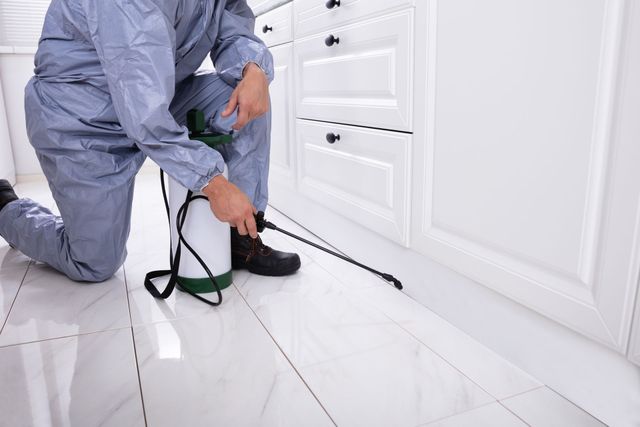As the hospitality industry continues to evolve, the use of cutting-edge technology becomes increasingly essential. One such innovation is the incorporation of AI cameras for pest detection. This technology not only enhances guest satisfaction but also boosts operational efficiency. In this article, we delve into how hotels are leveraging AI cameras to maintain a pest-free environment, ensuring a clean and comfortable stay for their guests.

Understanding the Need for AI in Pest Control
Hotels are bustling hubs of activity, welcoming guests from all corners of the globe. With such a vast influx of people, maintaining a pristine environment is paramount. Pests, however, pose a significant challenge in this pursuit. Traditional pest control methods often fall short in detecting and eliminating these unwelcome intruders.
This is where AI cameras come into play. By utilizing artificial intelligence, hotels can monitor and identify pests in real-time, significantly reducing the risk of infestations. This proactive approach not only saves time and resources but also ensures the highest level of guest satisfaction.
How AI Cameras Work in Pest Detection
AI cameras are equipped with advanced sensors and machine learning algorithms that can detect and identify various types of pests. These cameras are strategically placed around the hotel premises, constantly scanning for any signs of pest activity. When a pest is detected, the system immediately alerts the hotel staff, allowing them to take swift action.
The use of AI in pest detection is not limited to visual identification. These systems can also analyze patterns and behaviors, predicting potential infestations before they occur. This level of foresight is invaluable in maintaining a pest-free environment.
Benefits of Implementing AI Cameras in Hotels
The implementation of AI cameras for pest detection offers numerous benefits to hotels. Firstly, it significantly reduces the reliance on human intervention, minimizing the risk of human error. This automated system ensures consistent monitoring, providing peace of mind to both hotel staff and guests.
Moreover, AI cameras are highly efficient in terms of cost and resource allocation. By identifying pest issues early, hotels can avoid costly infestations and potential damage to their reputation. Additionally, the data collected by these systems can be used to optimize pest control strategies, further enhancing their effectiveness.
For more on how continuous monitoring beats periodic inspections, visit this link.
Case Studies: Successful Implementation of AI Cameras in Hotels
Several leading hotel chains have already embraced the use of AI cameras for pest detection. These case studies highlight the success and effectiveness of this technology in real-world scenarios.
One such example is the implementation of AI cameras in a prominent hotel in New York City. By integrating this technology, the hotel was able to reduce pest complaints by over 75% within the first year. This impressive result not only improved guest satisfaction but also boosted the hotel's reputation as a leader in hospitality innovation.
Another success story comes from a luxury resort in California. By utilizing AI cameras, the resort achieved a pest-free environment, enhancing the overall guest experience. This proactive approach to pest control has set a new standard for the industry.
Challenges and Considerations
While the benefits of AI cameras in pest detection are undeniable, there are certain challenges and considerations to keep in mind. The initial cost of implementing such systems can be substantial, particularly for smaller hotels with limited budgets.
Furthermore, the effectiveness of AI cameras is heavily reliant on the quality of the technology and the expertise of the team managing it. Hotels must invest in high-quality systems and ensure their staff are adequately trained to maximize the benefits of this technology.
For more on the challenges of hotel pest monitoring, check out this article.
The Future of AI in Hospitality
The integration of AI cameras for pest detection marks a significant step forward in the hospitality industry. As technology continues to advance, the potential applications of AI in hotels are limitless. From personalized guest experiences to enhanced operational efficiency, AI is poised to revolutionize the way hotels operate.
As the industry moves towards a more tech-driven future, hotels must embrace these innovations to stay competitive. By investing in AI technology, hotels can ensure they provide the highest level of service, setting themselves apart in a crowded market.
For more information on pest control technology in hotels, visit this link.
Conclusion
In conclusion, the use of AI cameras for pest detection is a game-changer for the hospitality industry. By providing real-time monitoring and predictive capabilities, this technology allows hotels to maintain a pest-free environment, enhancing guest satisfaction and protecting their reputation.
As the demand for innovative solutions continues to grow, hotels must remain at the forefront of technological advancements. By embracing AI cameras and other emerging technologies, hotels can ensure they provide an unparalleled guest experience, setting the standard for the industry.

FAQ
Q: How do AI cameras detect pests?
A: AI cameras use advanced sensors and machine learning algorithms to identify pests based on their size, shape, and movement. These cameras continuously monitor the environment and alert hotel staff when any pests are detected.
Q: Are AI cameras cost-effective for hotels?
A: Yes, AI cameras can be cost-effective in the long run. By preventing infestations and minimizing pest-related damage, hotels can save on repair costs and avoid potential damage to their reputation.
Q: What are the main challenges of implementing AI cameras in hotels?
A: The main challenges include the initial cost of implementation and the need for high-quality technology and trained staff. However, the benefits of a pest-free environment often outweigh these challenges.
